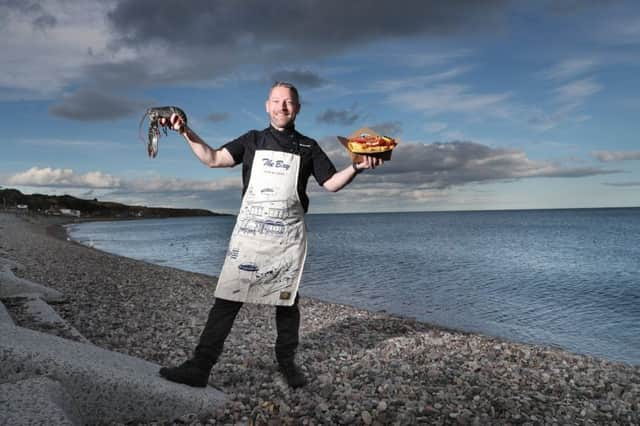Chipping away at waste problem means we’re not hooked on plastic


Sustainability is one of the most relevant topics of the past decade, from food to energy – the public’s demand for greener products and services is at an all time high. So where does the responsibility lie , with the consumer, governing bodies or service providers?
At The Bay Fish & Chips in Stonehaven, we strive to take responsibility for our own eco-friendly credibility. When we opened in 2006, our aim was to bring responsibly sourced fish to the doorstep of a fishing town in the north of Scotland, but we soon realised the issue was far bigger than us and had to be tackled from all angles.
Advertisement
Hide AdAdvertisement
Hide AdThe first port of call was to address the fast food industry’s reluctance to join the sustainable movement and, as a result, the public’s negative perception of the industry.
Consumer perception of sustainability isn’t aligned with fast food, so how can a food service provide cheap food in an instant without cutting corners and costs? This is where we took the lead with our suppliers – we had to re-educate and reinforce the importance of sustainability, even if this meant increased overheads. We had to show that, long term, it can be mutually beneficial.
For example, we source more than £200,000 worth of fresh fish from Couper Seafoods every year. All that seafood was being delivered using industry standard Styrofoam plastic containers. Each container was 50p a pop and non-biodegradable which meant our unrecycled waste was out of control. We worked with the Couper Seafoods team to identify a reusable delivery pallet, which, even with the initial financial input, has resulted in both us and the supplier significantly reducing our plastic waste and saving £1,500 a year on packaging.
This seems simple enough but to convince a large wholesale supplier to change a key component of its infrastructure is no mean feat. The success of this initiative has turned our attention to focusing on improving processes with all of our suppliers.
The WRAP UK Plastics Pact has ambitious goals. One key initiative is to eliminate single use plastic in the UK by 2025. It was at this stage we shifted our focus to the industry as a whole – supermarkets and restaurants were embracing the sustainable movement while we, the fast food industry, were falling behind.
The fast food giants, including McDonalds, have announced their commitment to reducing the industry’s global carbon footprint which has certainly helped steer us in the right direction, but we still have a lot of work to do. The 10,000 fish and chip shops in the UK are just one group that can help us reach that goal by shifting to greener practices through a partnership approach with suppliers and food service providers.
Another area of contention within the hospitality industry is employment conditions. From low wages to zero hour contracts – alongside retail, hospitality staff are among the lowest paid the UK with one in five employees on a zero hour contract – the industry is notorious for treating employees unfairly and as a result, a high turnover of staff is the norm.
For a customer service-led industry, this can result in staff who are not committed to providing the best service they can – why should they be expected to if they’re not paid or supported adequately?
Advertisement
Hide AdAdvertisement
Hide AdTo truly get the most from an employee, you have to be a good employer. When the Living Wage scheme launched, it highlighted the widening gap between the National Living Wage and the Real Living Wage and what that discrepancy meant for employees’ standard of living. It is well known that the cost of living continues to rise and yet we’re not providing workers with a salary that supports that increase.
This year, we became the UK’s first fish and chip shop to provide its staff with the Real Living Wage and receive its official accreditation from the Living Wage Foundation – an organisation which champions livable earnings for all workers across the UK. As part of the formal accreditation, we joined the Living Wage Hospitality Steering Group in a bid to help increase the wages of Scotland’s lowest paid workers. The industry is certainly heading in the right direction and the future looks promising for organisations, employees and consumers. We simply have to ensure we maintain a collaborative approach and continue to champion the brands that are leading the way.
Calum Richardson, director of The Bay Fish & Chips.